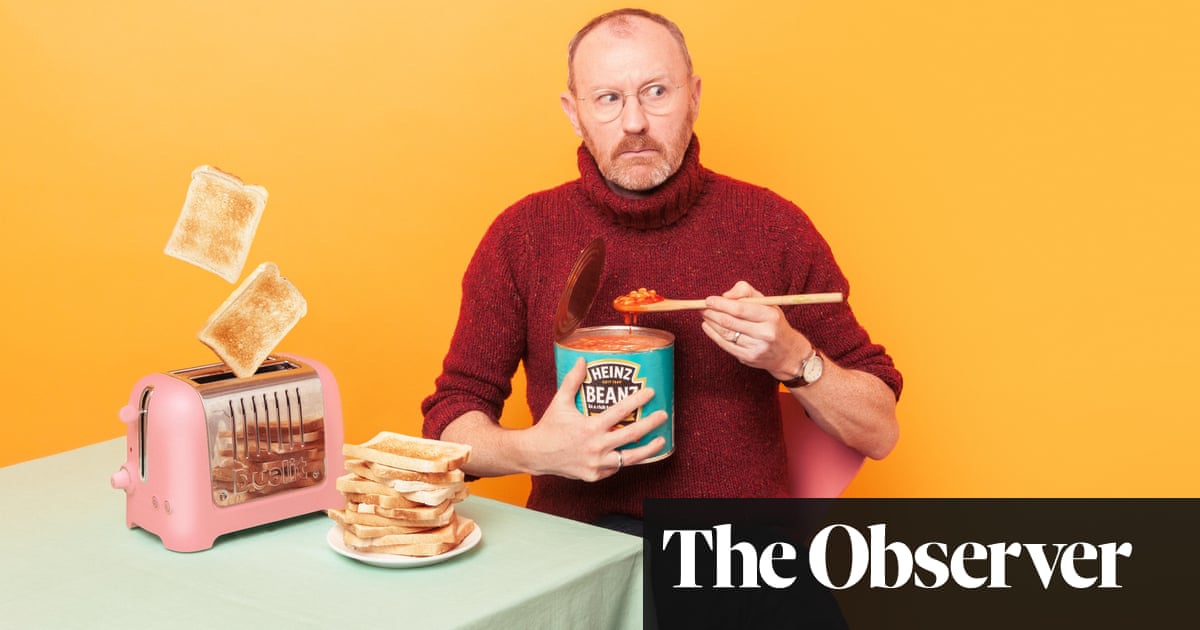
This play is about King George III’s “madness”, but its cause is not entirely clear. Do you have your own theory about the source of his collapse?
The only thing that dates the play is a diagnosis of “porphyria”, which turns urine blue. That was the fashionable reasoning of the time. My feeling is that he had a massive mental breakdown: he had lost several children and he was one of those kings, like George VI, who was not really fitted to monarchy and might have been a farmer instead, but he had an enormous sense of duty.
I felt I could do something different with his condition and didn’t want to repeat what Nigel Hawthorne had already done. There was so much strangeness to it and yet it was familiar in its mania. I had had an auntie who was a manic talker – she couldn’t bear any silence – and King George had talked for nine hours at a time. And having grown up opposite a mental institution and known a lot of the patients quite well, I based the physicality [in the performance] on them.
You did some research in Windsor in the run-up to the play. What did you come across?
I read a lot a lot of the letters [between the royal family]. By a wonderful coincidence, Arthur Burns, who runs the Georgian Papers Programme, was digitising thousands of documents from the archive which was a brilliant exercise in democratisation, and allows access and new discoveries to be made. What was most striking about the letters was the humanity: the pull between tinselly royalty and a family going through a crisis – and one in which the king represented the country. Bulletins about him at the time are similar to the bulletins around Boris Johnson recently that tell us in these times he is doing well.
Do you think the way we regard mental illness has changed significantly since the play was first performed in 1991?
People definitely feel more able to talk about it but the stigma hasn’t gone away. As a country, we tend to want to sweep things under the carpet. But all of the campaigns are very helpful, and we are in a different place to where we were in the early 90s. We had a whole day in rehearsals when we discussed how to talk about mental health.
Alan Bennett’s script captures 18th-century anxieties around the shrinking of the British empire. Can George’s madness be seen as a metaphor for national paranoia over the loss of imperial greatness and does this bear some parallels to Brexit Britain?
Yes. He is the body politic, and like all great plays, it is mutable. Arthur Burns said that when he saw it in the early 1990s, the line in which the Prince of Wales says, “I want to be doing, not dangling” was the most resonant. By the time of our production [at the Nottingham Playhouse in 2018], the stuff about empire resonated more strongly. In the week that Theresa May’s Brexit deal was torpedoed, there were gales of laughter over one of my lines in the play which said: “What about Europe, Mr Pitt, no-one has mentioned that yet.”
The king’s doctors come across as comical and clueless and George tells Dr Willis (played by Adrian Scarborough), who leads him to recovery, that it was time that cured his illness, not treatment. Do you think that to be true?
I think that the king wanted to own his recovery. Part of the characterisation of the doctors as comical or cruel is down to dramatic necessity. Dr Willis has to be different from the others – the saviour whose methods involve a regime of hard work, fresh air and getting outside to reconnect with nature, plants, flowers, which even today might be beneficial in lockdown. The big problem for the king’s doctors was that they weren’t allowed to touch him without his consent but Dr Willis said he had to treat the king like any other patient.
George speaks to his wife, Queen Charlotte [played by Debra Gillett] of the wish to live like “an ordinary couple”. Do you have some sympathy for Prince Harry in his decision to distance himself from his royal role?
It’s difficult because I’m a republican but as a person I completely sympathise. He and his wife are absolutely pilloried by virtue of doing something different. They are genuinely trying to break this cycle and they have been categorised as the Duke and Duchess of Windsor. It’s history repeating itself. But I’m also sympathetic to Prince William. He’s as dull as sticks but that’s what monarchy should be and it’s why he’s seen as a safe pair of hands.
Are you writing in lockdown or binge-watching TV?
I’m mostly painting and do it almost every day. I’m writing a bit and have written my adaptation of A Christmas Carol, but being in the middle of a global emergency is not conducive to the muse. This will be remembered as the year that never happened. If we knew that we’d be back to normal by January we’d have a framework, but not knowing eats away at creativity. Most writers usually write in a vacuum, but I keep coming back to the question: “What’s it for?”
With TV shows, we [Gatiss and his husband , Ian Hallard] always commit to the wrong show and then give up. We’re also about five to 10 years behind everyone else and we’ve just watched Unorthodox. But we’re mostly watching old dramas on YouTube. We’ve fallen down a wormhole and become obsessed by The Adventure Game, which is a crazy kids show from the 1980s and has a classic BBC boffinishness. Its sexual politics are really interesting, too – the men in it are insufferable.
Sam Mendes recently called for companies like Netflix and Amazon to help fix the arts after the lockdown, given the profits they have made during it. What do you think about this?
It’s complicated. It would be wonderful if this wasn’t just a gesture but a proper fund – but I wouldn’t hold my breath. As Sam said, we have to look at the ecosystem, and of course it’s the responsibility of government but it can’t be just that. We’re not like France and will never value culture like we should, so we have to talk about the economic argument. More people go to the theatre than to a football match, and it’s a huge part of who we are and what we do. Even if you were just being a hard-nosed Tory about it, it makes an absolutely huge amount of money.
You have said that regional theatre is the lifeblood of the industry and also backed a campaign to save King’s Head theatre, a fringe venue in London. What is your biggest worry for the future of theatre?
Without hyperbolising, this is not the plague, and anyway the plague didn’t destroy the concept of theatre, nor will this, but a lot of the infrastructure and ecosystem is being smashed. Theatre will return, but a lot of old friends and institutions will fall, and that feels upsetting and soul-destroying. We will get past this, but what we need to do now is save as much as we can with financial and spiritual support.
• The Madness of George III streams on YouTube from 7pm on 11 June as part of National Theatre at Home; available until 18 June. How to make a donation to the National Theatre. How to make a donation to Nottingham Playhouse.












